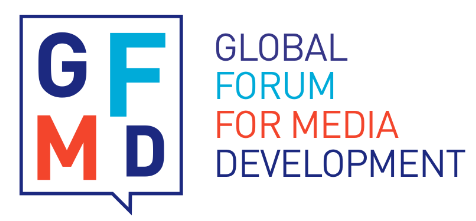“Media Development, Countering Violent Extremism (CVE) and Counter-Propaganda: What is the problem” organised by the Global Forum for Media Development on 26 April 2016.
The workshop brought together organisations from media development, academics and practitioners working on media development, strategic communication and CVE. Professor Christoph Meyer represented the INFOCORE consortium at the workshop.
The first point to be emphasised is the importance of media credibility in order to have an impact and this can be highly variable in terms of which types of media and actors are considered how trustworthy by whom and in different contexts. This can only be ascertained through listening carefully to what relevant publics have to say and which media they actually consume. In many of our conflict cases, the preliminary evidence points to low levels of trust among populations in many national-level news organisations whom they see as compromised by political or commercial interests and thus untrustworthy in various ways. Yet there are also credible communicators who are often very local and may in some cases not conform to standard expectations of what a medium is and intersect at times with forms of community mobilisation and social movements. Such local actors can use modern technology to fill a void in supplying information to foreign news media in settings of ongoing conflict and build up their credibility over time through the provision of such information. In such conflict situations, one of the challenges for media development activities is how such local actors can be supported without compromising their independence, the physical safety of those working for them or undermine their credibility by denying accurate news that may be inconvenient for some of the donors. In less dangerous settings the challenge is how donors can integrate media assistance in broader strategies of democratisation and development that tackle the many obstacles for media to report independently from the national or local power-brokers.
Second, the success of media assistance cannot be analysed in isolation from many other actors and processes, including the policies pursued by governments and international organisations. A new strategic approach is needed in some of the countries where retrograde processes are identified in terms of media and journalists’ freedoms , because the existing types of assistance and support to the media haven’t resulted so far to expected outcomes. Success should not just be measured in terms of changing behaviour or attitudes, but also in terms of enhancing public knowledge through more accurate and relevant information.
For more information about the workshop can be found here.

